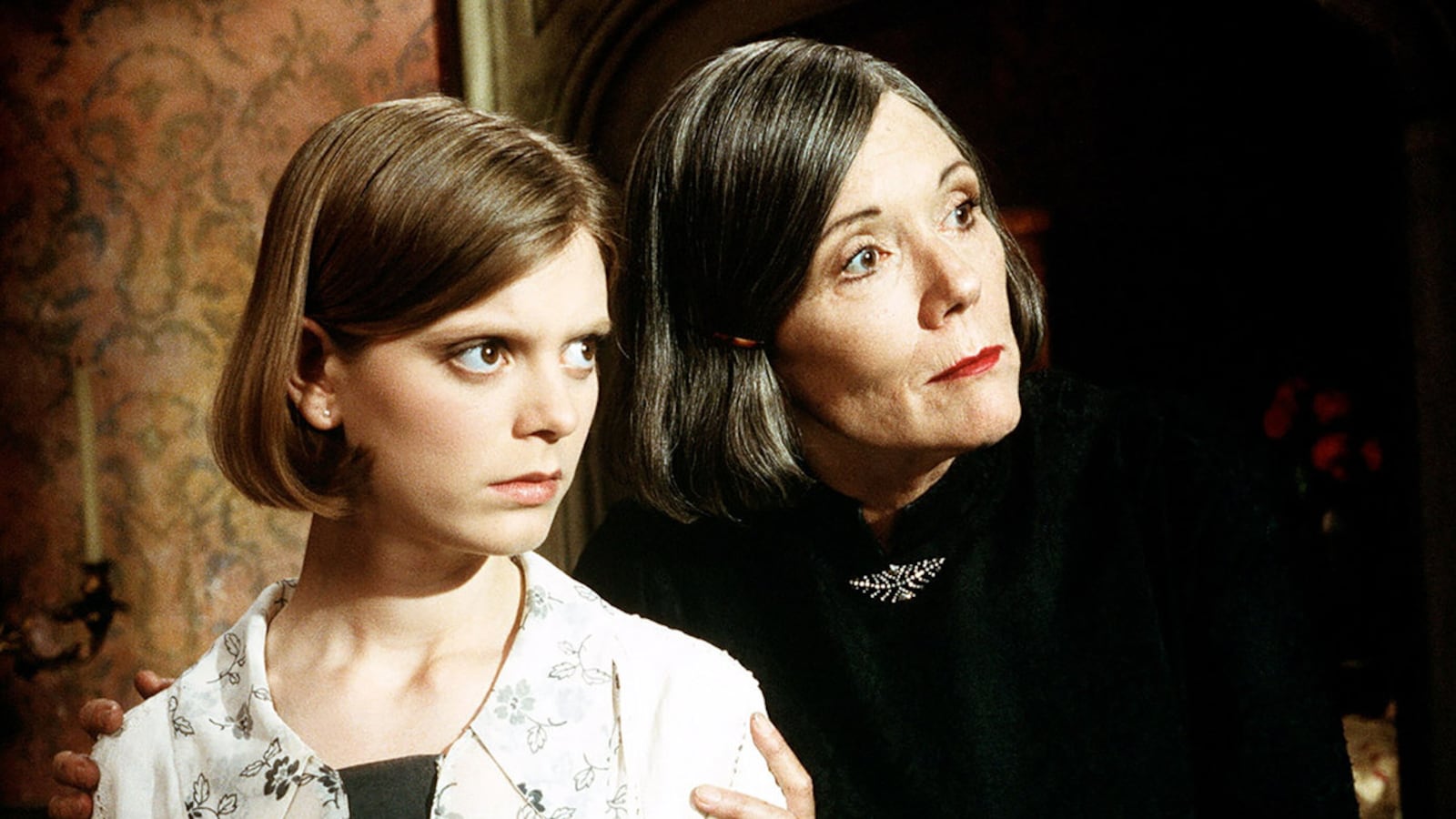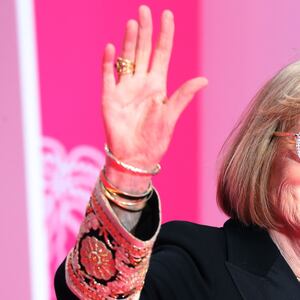[Warning: Contains spoilers for the plot of Rebecca.]
Daphne du Maurier’s Rebecca may be unfilmable. I know, it’s an odd thing to say about a novel that’s been adapted again and again for film (and once won the Oscar for best picture), for television, and for radio. But think about it: If any one of these productions had gotten it completely right, there would be no stampede for a remake. To the contrary, I think producers, screenwriters, and directors tell themselves that those previous versions missed the mark, and that they will nail it. And so the remakes continue, including a new Netflix version that’s so cautious and conventional that you wonder why anyone bothered.
What all the filmmakers ignore or feebly try to make us forget is that Rebecca succeeds as a novel because it’s in the first person. It’s subjective as only a novel can be, and by being stingy with her adjectives about the narrator—who does not even have a name—du Maurier encourages us to each make up our own image of the second Mrs. de Winter. And the harder you try to imagine her, the more you identify with her. Film on the other hand, is objective: “Me,” the narrator in the novel, becomes “her,” the actor on the screen. Even when the film tries to support her point of view, she’s a specific person with qualities all her own. You sympathize with her, but that’s as far as you can go, whereas for a reader, it is not a question of sympathy: You identify completely with the novel’s narrator because you’ve made her your own.
The filmed versions of Rebecca, at least the four that I have seen (there is also an Italian production), all begin like the novel, with a narrator telling us, “Last night I dreamt I went to Manderley again.” After that, they go their separate ways and with wildly varying degrees of success.
Hitchcock’s 1940 version was the only one made to be shown in theaters. The rest were made for television (there were also several truncated one-hour versions in the early years of live television, and there were also numerous productions of the story on radio, including one by Orson Welles). There are some differences in plot among the four versions, most notably in the Hitchcock treatment: Maxim does not shoot Rebecca, as he does in the book and in most of Hollywood’s subsequent variants—after a tussle, she dies after falling and hitting her head. To satisfy the Hollywood production code, which dictated that a protagonist could not be a murderer and get away with it, Rebecca’s death had to kinda/sorta be an accident.
And in that strange way movies have of erasing—in our minds at least—the plots they lifted from novels and stories, all the film endings of Rebecca I’ve seen take their cue from Hitchcock, not du Maurier: Mrs. Danvers not only sets Manderley ablaze at the end but also perishes in the fire. No, that’s not the way things work out in the novel, but who remembers that now?
It’s worth noting that after filming Rebecca, Hitchcock swore he’d never film another bestseller, largely because his producer, David O. Selznick, insisted that the movie remain as faithful as possible to its bestselling source material. Hitchcock’s attempts to fiddle with the plot came to nothing.
The biggest differences in the versions I’ve watched are in the casting. Each film usually gets it about half right: a good performance from the second Mrs. de Winter but a questionable Maxim (in Hitchcock’s), or the other way around. Jeremy Brett (in a 1979 made-for-TV version) and Charles Dance (in the 1997 mini-series) are both good Maxims, and Dance is the only one who’s the right age—since he’s more than 20 years his partner’s senior, it makes sense for once when he treats his bride like a child. The only notable thing about the new Netflix version is that it gets it wrong twice: Both stars are miscast.
Best all around is the 1979 version with Jeremy Brett, Joanna David, and Anna Massey. (Because the rights are tied up somehow, I could only find it on YouTube.) Brett pulls off the same trick he managed later when he played Sherlock Holmes so indelibly: He finds ways (starting with one of the most beguiling voices any actor’s ever had) to seduce and repel us all at once. Joanna David is not as electric as Joan Fontaine, but she’s less neurotic—she doesn’t look like she could have a nervous breakdown at any moment—and she’s therefore more identifiable: She’s just overwhelmed and frightened and feels vaguely fraudulent, and who can’t identify with that?
Only the 1997 version messes with the secondary characters. Faye Dunaway plays Mrs. Van Hopper not as the usual meanspirited social climber but as a loud, crass, drunk social climber. You almost like her. And then there is the late Diana Rigg with an Emmy-winning Mrs. Danvers for the ages.
Outfitted with a horrible sort of bob/hat hairdo, skull-like face, and scarecrow body, Rigg is the closest to the book’s description of Manderley’s nasty housekeeper. But where the other Mrs. Danvers in other Rebeccas are all malevolent cigar store Indians, Rigg plays it totally over the top in a “Rebecca is mine, mine, all mine!” sort of way. The lesbian subtext is subtext no more. For that matter, there’s no subtext of any kind. What you see is what you get, and Rigg certainly gives you something to see: a scenery-chewing performance so over the top that you wonder if they didn’t pay her in scenery. The amazing thing is, this cackling acting, as funny as it is, is somehow also terrifying.
Rigg had an oddly shaped career, with the fame coming in the beginning and at the end, first as the impossibly smart and sexy secret agent in The Avengers in the ’60s, and winding up as the old queen Olenna Tyrell in Game of Thrones five decades later. She’d come to The Avengers from the Royal Shakespeare Company, and after that series went off the air, she spent most of the rest of her life as an acclaimed stage actress, taking the occasional movie role but obviously not taking movie acting very seriously. (Jobwise, she was sort of the female Peter O’Toole.) But no matter what she’s in, she’s always a pleasure to watch, whether it’s Bleak House or The Great Muppet Caper, and the fun she has amping up Mrs. Danvers is contagious. You hate to see her leave any scene, and you can’t wait for her to show up again.
I finished watching that Rebecca not so much because I cared about the mini-series but because I hadn’t known about Rigg’s performance until I started researching this article, and it was a wonderful surprise, a sort of posthumous gift from an always surprising actor. Which is another way of saying that multiple Rebeccas may not be a bad thing after all: You never know who’s going to turn up and do something brilliant.
There will never be a one true Rebecca just as there will never be the one true Hamlet. For while du Maurier may have been no Shakespeare, she was a prodigiously talented fiction writer whose mysterious, unsettling tales continue to beguile readers more than half a century after they were published, including filmmakers who recognize good stories when they find them. Indeed, it is a sort of compliment to du Maurier that the films made from her fiction, including The Birds, almost never measure up to the originals, with the notable exception of Nicolas Roeg’s Don’t Look Now, the one movie as good as the story upon which it’s based.

